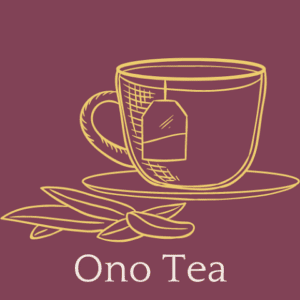Getting a good night’s sleep can feel like an elusive luxury in today’s fast-paced world. Between the demands of work, family, and the ever-present glow of screens, many of us struggle to unwind and achieve the restful slumber our bodies and minds crave. Fortunately, nature offers a gentle solution: herbal teas. For centuries, people have turned to the soothing properties of plants to calm their nerves, ease into relaxation, and prepare for sleep. Paired with intentional nighttime rituals, these teas can transform bedtime into a sanctuary of peace and restoration.
This article explores the best herbal teas for better sleep, their unique benefits, and how to incorporate them into nighttime rituals that signal to your body it’s time to rest. Whether you’re a tea enthusiast or a sleep-deprived soul seeking relief, these brews might just become your new best friends.
Why Herbal Teas Work for Sleep
Herbal teas, also known as tisanes, are caffeine-free infusions made from dried herbs, flowers, fruits, or spices. Unlike black, green, or oolong teas, which come from the Camellia sinensis plant and contain caffeine, herbal teas are naturally soothing and won’t keep you awake. Many of these herbs contain compounds that interact with the nervous system, promoting relaxation, reducing anxiety, and even encouraging the production of sleep-regulating hormones like melatonin.
Sipping tea is also a ritualistic experience. The warmth of the cup in your hands, the aromatic steam rising to your nose, and the slow, deliberate act of drinking can all help shift your mind away from the day’s stressors. When combined with a consistent nighttime routine, herbal teas become a powerful tool for better sleep hygiene.
Below, we’ll dive into the best herbal teas for sleep and how they can enhance your nighttime rituals.
The Best Herbal Teas for Better Sleep
1. Chamomile Tea: The Classic Sleep Aid
Chamomile is perhaps the most well-known herbal tea for sleep, and for good reason. Derived from the daisy-like flowers of the Matricaria chamomilla plant, chamomile has been used for centuries as a natural remedy for insomnia and anxiety. Its mild, floral flavor is both comforting and subtle, making it an ideal bedtime companion.
Why It Works: Chamomile contains apigenin, an antioxidant that binds to specific receptors in the brain, reducing anxiety and initiating sleep. Studies have shown that chamomile can improve sleep quality, particularly for those with mild insomnia or restlessness.
Nighttime Ritual Idea: Brew a cup of chamomile tea 30 minutes before bed. Pair it with a calming activity like reading a book or practicing deep breathing. To enhance the experience, add a touch of honey for sweetness or a sprinkle of lavender buds for extra relaxation.
Preparation Tip: Steep 1–2 teaspoons of dried chamomile flowers (or a chamomile tea bag) in hot water for 5–10 minutes. The longer it steeps, the stronger the flavor and effects.
2. Lavender Tea: A Fragrant Path to Peace
Lavender is synonymous with relaxation, often found in candles, bath salts, and essential oils. But did you know you can drink it too? Lavender tea, made from the purple buds of the Lavandula angustifolia plant, offers a delicate, slightly sweet flavor that soothes both the mind and body.
Why It Works: Lavender has been shown to lower heart rate and blood pressure, creating a state of calm conducive to sleep. Its aroma alone can reduce stress, while sipping the tea amplifies its sedative effects.
Nighttime Ritual Idea: Sip lavender tea while dimming the lights in your home. Combine it with a warm bath infused with lavender oil or a few drops of lavender essential oil on your pillow for a multi-sensory wind-down.
Preparation Tip: Use 1 teaspoon of dried lavender buds per cup of hot water and steep for 5–7 minutes. Strain well, as the buds can be intense if over-steeped.
3. Valerian Root Tea: The Heavy Hitter
Valerian root, derived from the Valeriana officinalis plant, is a potent herbal remedy often recommended for those with chronic sleep issues. While its earthy, somewhat pungent flavor might not win any taste awards, its effectiveness makes it a staple in the world of natural sleep aids.
Why It Works: Valerian increases levels of gamma-aminobutyric acid (GABA) in the brain, a neurotransmitter that calms nerve activity. Research suggests it can reduce the time it takes to fall asleep and improve overall sleep quality.
Nighttime Ritual Idea: Drink valerian root tea an hour before bed, followed by a short meditation or journaling session to clear your mind. Since the taste can be strong, consider blending it with chamomile or peppermint for a more palatable brew.
Preparation Tip: Steep 1 teaspoon of dried valerian root in hot water for 10–15 minutes. Start with a small amount if you’re new to it, as it can be quite sedative.
4. Passionflower Tea: The Anxiety Buster
Passionflower (Passiflora incarnata) is a beautiful vine with striking flowers, but its real magic lies in its calming properties. Traditionally used to treat anxiety and insomnia, passionflower tea has a mild, grassy taste that pairs well with other herbs.
Why It Works: Like valerian, passionflower boosts GABA levels, helping to quiet an overactive mind. It’s particularly effective for those whose sleeplessness stems from racing thoughts or stress.
Nighttime Ritual Idea: Enjoy passionflower tea while practicing progressive muscle relaxation—tensing and releasing each muscle group from your toes to your head. This combination can melt away physical and mental tension.
Preparation Tip: Steep 1 teaspoon of dried passionflower in hot water for 10 minutes. Add a splash of lemon or honey to brighten the flavor.
5. Lemon Balm Tea: The Mood Lifter
Lemon balm (Melissa officinalis), a member of the mint family, offers a light, citrusy flavor that’s as uplifting as it is calming. It’s been used since the Middle Ages to reduce stress and promote sleep, making it a versatile addition to your tea collection.
Why It Works: Lemon balm has mild sedative properties and can enhance mood by reducing feelings of nervousness. When combined with other herbs like chamomile or valerian, its effects are amplified.
Nighttime Ritual Idea: Sip lemon balm tea while listening to soft music or a guided sleep meditation. Its gentle flavor makes it a great base for herbal blends tailored to your taste.
Preparation Tip: Use 1–2 teaspoons of dried lemon balm leaves per cup and steep for 5–10 minutes. Fresh leaves work too if you grow your own!
6. Peppermint Tea: The Digestive Soother
While peppermint (Mentha piperita) is often associated with energy due to its invigorating scent, it can also aid sleep by calming the body. Its cooling, refreshing taste makes it a favorite for winding down after a heavy meal.
Why It Works: Peppermint relaxes the muscles of the digestive tract, which can prevent discomfort that keeps you awake. A settled stomach often leads to a more restful night.
Nighttime Ritual Idea: Drink peppermint tea after dinner, paired with a short walk or gentle stretching to aid digestion. Avoid screens during this time to let your mind ease into sleep mode.
Preparation Tip: Steep 1 teaspoon of dried peppermint leaves (or a tea bag) in hot water for 5–7 minutes. It’s naturally sweet, so no additives are needed.
Crafting the Perfect Nighttime Tea Ritual
Herbal teas are most effective when paired with a consistent routine that cues your body and mind for sleep. Here’s how to create a nighttime ritual that maximizes their benefits:
- Set the Scene: Dim the lights, turn off electronics, and create a cozy atmosphere with soft blankets or candles (unscented or matching your tea’s aroma).
- Choose Your Tea: Pick one of the teas above based on your needs—chamomile for gentle relaxation, valerian for deeper sleep, or peppermint for post-dinner calm.
- Brew with Intention: Take a moment to focus on the process. Boil water, measure your herbs, and watch the steam rise as the tea steeps. This mindfulness can ground you in the present.
- Pair with a Calming Activity: Sip your tea while reading, journaling, or practicing gratitude (e.g., writing down three things you’re thankful for). Avoid stimulating activities like work or intense TV shows.
- Stick to a Schedule: Aim to start your ritual at the same time each night. Consistency trains your brain to associate tea with sleep.
- Experiment and Blend: Don’t be afraid to mix herbs—chamomile and lavender, or lemon balm and passionflower, for example—to find your perfect blend.
Additional Tips for Better Sleep
While herbal teas are a fantastic starting point, a holistic approach to sleep can amplify their effects. Consider these complementary habits:
- Limit Caffeine: Avoid coffee, black tea, or energy drinks after midday, as caffeine can linger in your system for hours.
- Create a Sleep-Friendly Environment: Keep your bedroom cool, dark, and quiet. Invest in blackout curtains or a white noise machine if needed.
- Wind Down Early: Give yourself at least an hour before bed free of screens. Blue light from phones and laptops suppresses melatonin production.
- Stay Hydrated: Sip your tea early enough to avoid middle-of-the-night bathroom trips.
Conclusion
Herbal teas offer a natural, delicious way to enhance sleep and build a nighttime ritual that nurtures both body and soul. From the gentle embrace of chamomile to the potent calm of valerian root, each tea brings its own unique gifts to the table. By pairing these brews with intentional habits—dimming the lights, breathing deeply, or simply savoring the moment—you can transform bedtime into a cherished part of your day.
So, the next time you’re tossing and turning, reach for a teapot instead of a pill. With a steaming cup in hand and a little patience, you might just find yourself drifting off into the sweetest of dreams.
Sources
- Adib-Hajbaghery, M., & Mousavi, S. N. (2017). “The effects of chamomile extract on sleep quality among elderly people: A clinical trial.” Complementary Therapies in Medicine, 35, 109–114. Available at: https://doi.org/10.1016/j.ctim.2017.09.010
- Srivastava, J. K., Shankar, E., & Gupta, S. (2010). “Chamomile: A herbal medicine of the past with a bright future.” Molecular Medicine Reports, 3(6), 895–901. Available at: https://doi.org/10.3892/mmr.2010.377
- Ngan, A., & Conduit, R. (2011). “A double-blind, placebo-controlled investigation of the effects of Passiflora incarnata (passionflower) herbal tea on subjective sleep quality.” Phytotherapy Research, 25(8), 1153–1159. Available at: https://doi.org/10.1002/ptr.3400

